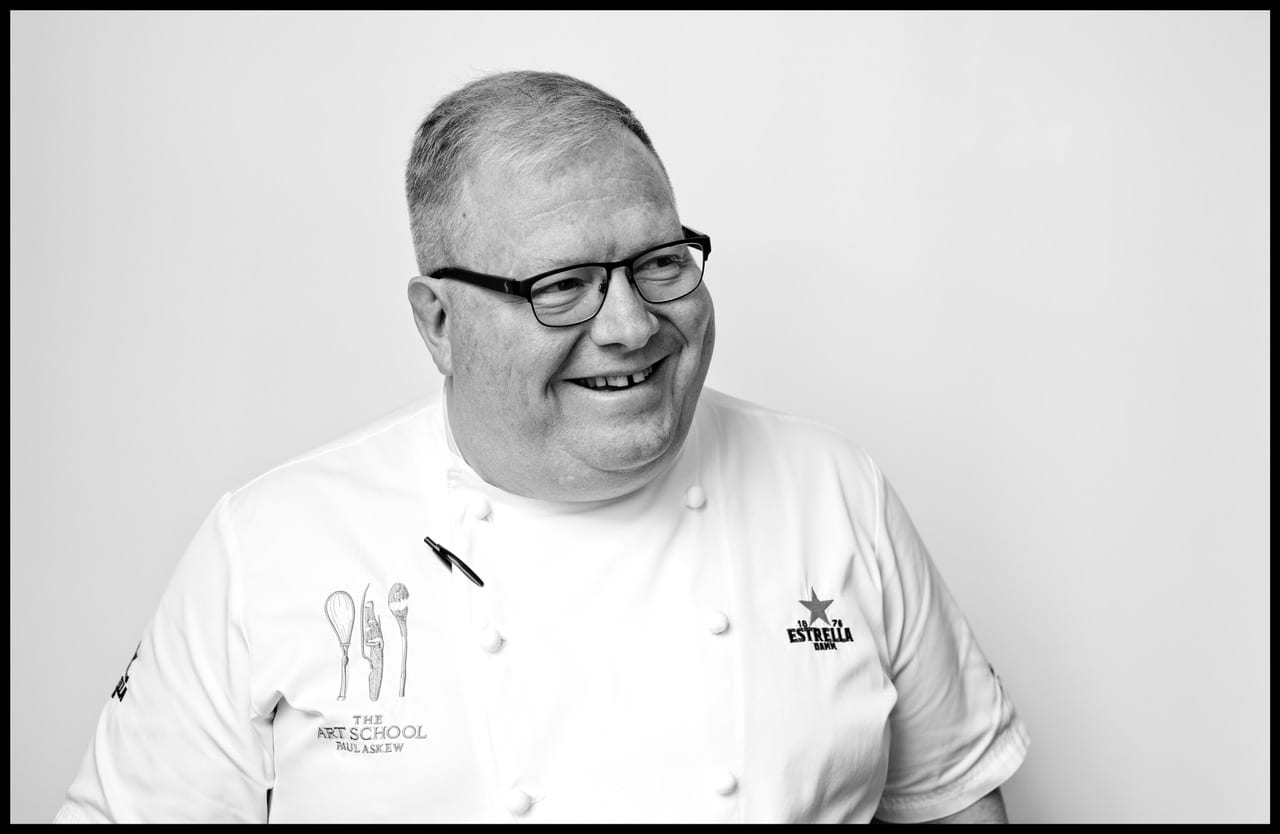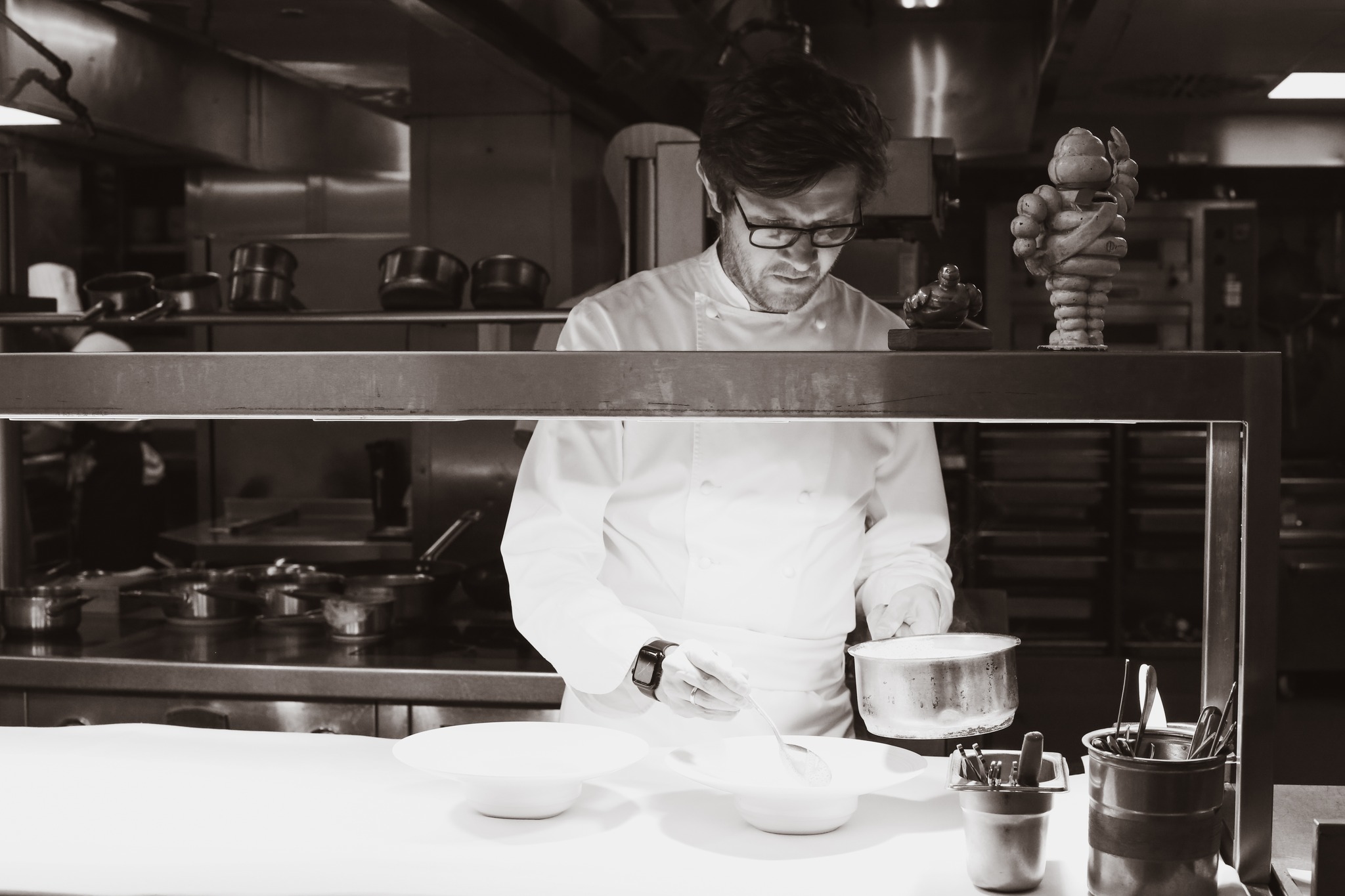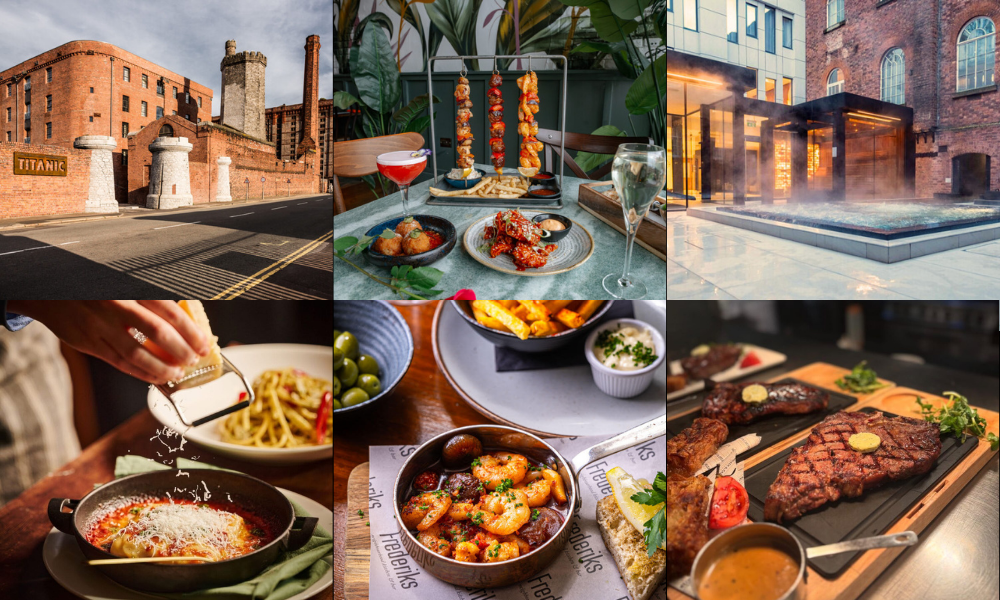
Features
Home Cook Liverpool 2021: Paul Askew shares top tips and favourite recipes
5 years ago

The Guide Liverpool has relaunched its Home Cook Liverpool series for 2021, focusing each week on one of our fabulous city chefs and asking them for their favourite recipes and some top culinary tips.
This week we’ve asked renowned chef Paul Askew from Liverpool’s much-loved Art School Restaurant to share some of his secrets, and his joy of food…
“The reason why I cook at home and professionally is down to my upbringing,” says Paul. “I grew up in a family that did a lot of travelliAng and I was exposed to all sorts of amazing produce, amazing restaurants, and amazing markets like the ones you get to see only on picture postcards.
“It was a love affair. It was a love affair with food but also a love affair with the effect that that has on people; when you cook a nice meal and sit down with your friends and family, or a group of people you’re cooking for professionally…
“You see the pleasure it brings, you see the enjoyment and the camaraderie it brings out, the fun that it creates. I always say it’s good for the soul as well as good for the calorific value and the energy that it gives you.”
Paul says food is also something we look forward to as a treat, one of life’s true pleasures: “And if you think about that for a minute, it’s probably one of the few things remaining in all of this madness at the moment. You can sit with your loved ones and share a plate of food and a glass of wine and talk about things, it solves problems.
“As far as the actual cooking process, for me it’s about expressing myself, it’s about being inspired by the ingredients and the quality that you see – in Merseyside in particular, and let nobody tell you any different. It has some of the most incredible ingredients you’ll ever find in terms of meat, fish and produce. It amazes me that people don’t realise what’s on their own doorstep. If I have fantastic ingredients I’m inspired to cook, and I get such a kick out of seeing raw ingredients being turned into a fine plate of food with texture and flavour.
“With the last lockdown there was a lot of baking, bread-making and banana loaf making, so let’s hope people have really brought food into their hearts. I know they’re all dying to get out to restaurants again but let’s hope a little more cooking carries on because it’s important for family life and for the next generation to see their mums and dads cooking as well so, there you go, the joy of food.”

Paul Askew
Chef Askew’s 5 Top Cooking tips!
1. The key to great cooking is about finding the quality ingredients, the best you can find and the best you can afford whether it be at a farm shop, a stand in the middle of town, or (occasionally) supermarkets. You want the freshest and the most local, the things that have been grown, reared and produced with the least amount of chemicals, organic or artisan ingredients. If we start off with something good the chances are that, unless you really mess it up, it’s going to end up pretty decent.
2. Seasoning. In the UK we’re notoriously bad at getting the balance of flavour right when we cook, whether it be spag bol, a piece of chateaubriand or a piece of cod, we’re not great at seasoning things. Believe it or not, it’s important to find the right salt, the right black pepper, the right white pepper, the right spices, the right herbs and make your own little seasonings, depending on the dish you’re going to do. We spend hours at the restaurant making different rubs and seasonings whether for fish, beef, lamb, venison, whatever, and it makes such a difference when you choose things that go well together. A simple salad is transformed with a little salt and pepper, oil and vinegar
3. Use fresh herbs. It’s not easy all the time but if you’ve got a little pot on the window sill or you’ve got a little bit of back garden, or a sun trap in your yard, plant a few herbs – sage, rosemary, parsley, things that grow pretty easily outside. They add such a depth or a freshness of flavour depending on when you use them. Even finishing vegetables with snipped fresh chives and a bit of butter and salt and pepper at the end transforms a piece of carrot into something absolutely delightful.
4. Don’t overcook things. We have a terrible habit of cooking everything to within the inch of its life! A lovely chicken, or lamb and beef and pork, will be absolutely well done, and all that happens to these things is that they lose their nutrients, they lose their flavour, they lose their texture and they’re just not very nice at all. My one exception is if you’re going for slow braised, in which case that’s different.
5. Keep knives really sharp and use them wisely. Keep them clean and tidy in a knife block or a knife wrap where they’re safe and don’t get chips in. We have a saying in the kitchen that the blunt knife is always the one that cuts… if you’re using a blunt knife and you’re pushing on an onion it’ll be that one that slips off and goes into your hand or your finger. Keep them sharp folks, keep them sharp.
‘Porky’ Askew’s Singaporean style Old Spot Pork Fillet, local vegetables with coconut and cardamom rice
Serves 4

Ingredients:
Callum Edge’s Organic Leahurst Farm Gloucester Old Spot Pork Tenderloin * 2 (trimmed and cleaned, 150-200gm per person)
Local vegetables:
2 shallots peeled and sliced
4 spring onions cleaned and sliced
8 rainbow chard leaves (4 red, 4 yellow) washed and trimmed
1 large carrot peeled and cut in to thin strips
4 choy sum washed, trimmed and sliced
200g mangetout sliced
100ml chicken stock or water
Splash of sesame oil
Method for the pork:
Add a splash of sesame oil into a hot non-stick frying pan or wok. Seal the tenderloins on all sides to seal in the juices – a little of the marinade can be poured over the pork before and during this process, turning the pork every now and again for 4-6 minutes. Allow to rest in the pan before slicing onto the rice and vegetables.
Method for the vegetables:
In another hot saute pan or wok (non-stick) add a splash of sesame oil and some julienne ginger, start adding the vegetables in order of cooking time (ie. carrots first, greens last). Stirring and tossing the vegetables for 2-3 minutes, add the marinade along the way and a little chicken or vegetable stock to add additional flavour and create a sauce.
For Porky Askew’s Singaporean style Marinade
Ingredients:
25ml sesame oil
50ml Kikkoman soy sauce
2 tbsp Mirin
50g (1 thumb) fresh root ginger, peeled and roughly chopped
50g (3 cloves) garlic, peeled and roughly chopped
1 red chilli, deseeded, topped and sliced (add another if you like it spicy)
Zest and juice of 1 lime
50g fresh coriander, leaf and stalk
50g fresh mint,
Method:
To make the luxurious Singaporean style marinade, add all the ingredients into a bowl or a jug and, using a stick blender, combine and blend to a pouring consistency.
For the Coconut and Cardamom rice
Ingredients:
3 cups of fragrant rice (or basmati)
200 ml of low-fat coconut milk
200 ml of water
10 green cardamoms
Lo Salt to taste
Method:
Add the cardamom pods, coconut milk, water and salt and place all of the ingredients in a good-sized pan or rice cooker and cover, cook on a low heat until fluffy (8 mins approx.). Just let the rice absorb the liquid and take off the heat, leave the lid on to keep warm before serving.
For the Topping:
Toasted sunflower seeds
Chopped chives
Lemon and Tarragon Chicken

Moving on to France, Paul’s shared his spin on the classic dish of Lemon and Tarragon Chicken.
He says: “I like to do this dish on the bone, so I’d keep the breast just with the wing bone on or, even better, do it as a joint in a roasting tin with some other vegetables in it.”
Ingredients:
Olive oil
Chicken breast (with wing on bone)
Fresh tarragon
Lemon zest and juice
Flat leaf parsley
Rosemary
Espelette
Garlic
Salt & Pepper
Method:
First make a marinade so use good olive oil, Extra Virgin if possible, some garlic, some molden sea salts and cracked pepper, some fresh tarragon, the zest of a lemon, juice of a lemon and then add some flat leaf parsley and a little bit of rosemary. The final ingredient, ‘one of my favourite things’ is some espelette pepper, easily available online or in a gourmet shop but if you can’t get it, you could use some nice paprika.
“So you can see that you’ve got the some sharpness of citrus, balanced with the oil, seasoning and herbs.” The marinade should be like a paste, rub it on the breast of chicken and allow to marinade for a couple of hours. Paul likes to keep the skin on the chicken breast, but you can remove it if you prefer.
To cook, seal the chicken on one side in a hot pan on the non-skin side, turn it over and then it goes in the oven (165 degrees). Paul says: “I like to serve it with something seasonal. So if we were doing it right now things like romanesco cauliflower, Cavolo Nero which is still being grown in Ormskirk and Maghull, or some beautiful leeks, they go really well with the chicken.
“We’re just going to cut those up and blanch them. Then you could add a little marinade to them or, if you’re really being naughty, you could add a little bit of butter and even some cream to make a sauce from the juices that have come out of the chicken during cooking.
“If you’re being really good then don’t do that! Instead use a bit of chicken stock and just make it a jus and add some white wine, and reduce down to make a sauce. I don’t really think it needs potato or anything like that but if you wanted, the best thing would be a nice loaf of crusty bread and use the bread to mop up the beautiful herb and chicken juices.
“One of these days we might be let loose in the kitchen again to cook properly and you can come and visit us at the restaurant. Who knows, maybe I’ll do version of this and pimp it up a little bit to make it a restaurant dish?!”









 Subscribe
Subscribe Follow Us
Follow Us Follow Us
Follow Us Follow Us
Follow Us Follow Us
Follow Us Follow Us
Follow Us











